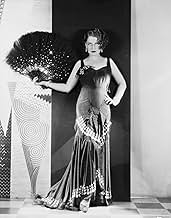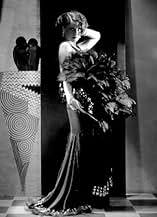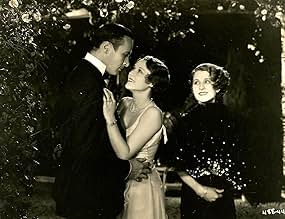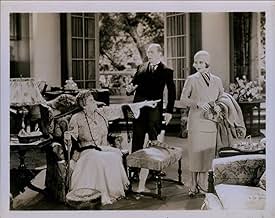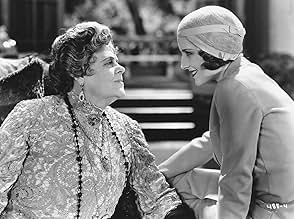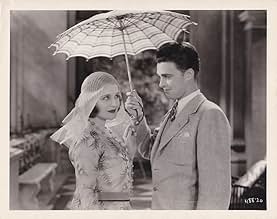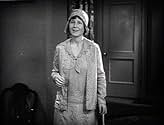Aggiungi una trama nella tua linguaA housewife divorces her self-centered husband. Years later, she attends a party where her ex is pursuing another woman. Unbeknownst to him, she is the same ex-wife he'd neglected, now trans... Leggi tuttoA housewife divorces her self-centered husband. Years later, she attends a party where her ex is pursuing another woman. Unbeknownst to him, she is the same ex-wife he'd neglected, now transformed into a fashionable socialite.A housewife divorces her self-centered husband. Years later, she attends a party where her ex is pursuing another woman. Unbeknownst to him, she is the same ex-wife he'd neglected, now transformed into a fashionable socialite.
- Regia
- Sceneggiatura
- Star
- Premi
- 1 vittoria in totale
- Bob Brown
- (as Rod LaRocque)
- Wallace
- (as Tyrrell Davis)
- Struthers
- (as William O'Brien)
- Bobby Brown - 8 Years Old
- (non citato nei titoli originali)
- Mrs. McIntyre
- (non citato nei titoli originali)
- The Brown's Little Girl
- (non citato nei titoli originali)
- Helen Hibbard
- (non citato nei titoli originali)
- Bobby Brown - 5 Years Old
- (non citato nei titoli originali)
Recensioni in evidenza
Three years later, Shearer is a glamorous and flirty divorcée. While summering in Paris, she has struck up a friendship with wealthy, older socialite Marie Dressler (as Mrs. "Boucci" Bouccicault). Ms. Dressler invites Shearer to her Long Island home, to socialize with some friends, and ask a favor. Dressler is worried about her granddaughter's relationship with a suave, worldly man. She wants young Sally Eilers (as Dionne) to marry Raymond Hackett (as Bruce), instead. Aware of Shearer's flirtatious conquests, Dressler asks her to lure the undesirable man away from Ms. Eilers. Shearer is stunned to discover the man is La Rocque, her ex-husband.
Shearer and Dressler make this a cute, entertaining play. They are in top form, giving guaranteed-to-be-popular performances, with enthusiasm and professionalism. The story is silly and predictable; yet, in a way which helps the humorous situation. And, the ending is quite clever. In fact, the comic "Let Us be Gay" may have aged better than Shearer's larger-produced, and more serious, "The Divorcée", which was released around the same time. The cast uniformly fine. La Rocque is better than his film with Lillian Gish; but, his role is not at all endearing. Gilbert Emery (as Towney) and Tyrell Davis (as Wallace) are funny supporting suitors.
Those not familiar with Norma Shearer may not realize it is she who appears as the dowdy wife in the opening scenes. This is Shearer as "Kitty" before her make-over. Watch the close-ups of Shearer with light, natural make-up, for a good look at an intriguingly beautiful woman.
******* Let Us Be Gay (1930) Robert Z. Leonard ~ Norma Shearer, Marie Dressler, Rod La Rocque
Surprisingly, once you get used to its theatrical style - necessary for this type of comedy, you might enjoy this. I didn't think I would but despite my initial reservations (were I around then, I'd have been watching Cagney at the Warner Brothers cinemas), I actually found myself laughing at this.
If someone asked you what 1930s movies were like, this type of picture would definitely not be what you'd think about. Today such gentle, gentile plays would play to empty houses but if you put yourself into the mindset of a 1929 theatre goer, you'll find this quite amusing: it's not what these days you'd call funny but it's not without some charm.
Like all of her films, this is another excuse for Irving Thalberg to say to the world: Have I got a hot wife or what! Inexplicably although Miss Shearer is no classic beauty, she somehow exudes 1.21 Gigawatts of sexuality. Don't know how she does it....maybe it's because she was such a good actress!
In this picture, Mrs T after divorcing her unfaithful husband reinvents herself as the most brazen, sex-hungry man eater you've ever seen outside of a Carry On film. The rest of the cast are the usual stock characters for this type of thing but it's made so well (ok, it's a bit creaky because it was made in 1930) it's a cut above the usual. As long as you know what you're going to get: the acting isn't meant to be naturalistic, it's in the style of a farce - it's actually quite entertaining.
Marie Dressler is a rich society lady and she has invited a new and improved Norma to come to her house for the weekend--ostensibly to help Marie break up a budding romance between her daughter and La Rocque! Apparently, Norma is now a super-vamp and with her magical sex appeal, she can break up the romance--and no one seems to realize that she and La Rocque were married. Several others are there for the weekend and immediately Norma is a hit with her gay, carefree sexy ways--and almost all the men (including La Rocque) are captivated by her. Neither tells anyone that they were married but it's obvious that her ex- wants the new and improved Norma back! This film is a sophisticated comedy of manners among the upper-crust--similar in some ways to Jean Renoir's THE RULES OF THE GAME. Oddly, despite the severity of the Depression, such films about pretty rich folks were pretty popular though many today will doubtless find them a bit too droll in spots. However, fortunately, in LET US BE GAY, there are plenty of cute and funny moments (particularly towards the end when Marie Dressler shows her true colors). While not a great film, it certainly is a good one and more than just another time-passer. My only real regret is that I didn't love the very end. You'll just have to see it for yourself--perhaps you'll agree about the ending, perhaps you won't, but I'm pretty sure you will enjoy this clever film.
Lo sapevi?
- QuizAt the time of its release, this film features the next two actresses to win Best Actress at the Academy Awards, Norma Shearer would win at the ceremony later that year for La divorziata (1930), and Marie Dressler the year after for Castigo (1930).
- BlooperNear the end of the film, just after the children depart with Boucci and their nurse, a shadow of the boom microphone falls across a column to the right of the scene.
- Citazioni
Mrs. Katherine Brown: For Heaven's sake, let's be gay about this!
- ConnessioniAlternate-language version of Soyons gais (1930)
- Colonne sonoreOh Where Oh Where Has My Little Dog Gone
(1864) (uncredited)
Written by Septimus Winner
Sung a cappella by Rod La Rocque with modified lyrics
I più visti
- How long is Let Us Be Gay?Powered by Alexa
Dettagli
- Data di uscita
- Paese di origine
- Lingua
- Celebre anche come
- Let Us Be Gay
- Luoghi delle riprese
- Azienda produttrice
- Vedi altri crediti dell’azienda su IMDbPro
- Tempo di esecuzione1 ora 19 minuti
- Colore
Contribuisci a questa pagina


